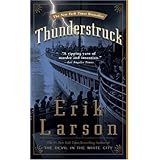Latest Book
It is odd that I picked up a book called Tobacco (2001). I hate tobacco in all its forms. It is a vile substance in my estimation.
So, oddly, I just finished Iain Gately’s Tobacco which had been sitting on my pile of cheap books for a while, at least two years. I like books about single subjects – acorns, salt, cochineal beetles – because they reveal so much about social history. Tobacco is no different. Covering a very wide time span, from the Spanish conquest of the “New World” to the heyday of anti-tobacco law suits in the 1990s, the book tells the stories of fads, motivations, restrictions, gender roles, class differences, cultural preferences, advertising motifs and pure old dependence.
Gately has a very English style of understatement that made me laugh out loud quite a few times. He says this of the early Spanish conquest: “Relations between the Spaniards and Americans were limited to exploitation and sex.” I probably would have put the book away for another two years if I hadn’t stopped to read that line over a few times, now aware that Gately is capable of succinct mockery. As one who teaches this horrible period in human history I do appreciate the reference.
Hitler hated tobacco. Duke University was so-named after a gift of millions of dollars to Little Trinity College by Buck Duke, founder of the American Tobacco Company. Smoking jackets were designed so that weak women wouldn’t have to smell tobacco on their aristocratic husbands. Prohibition was a great boon to smoking. The book is full of interesting little nuggets like this. It is a quick trip through American and British popular culture.
What I didn’t like about the book was the ending. Gately seems to have succumbed to his own sub-title: A Cultural History of How an Exotic Plant Seduced Civilization. In the end he is seduced by the allure of tobacco, good and bad: “Many great men and women have left elegant testimonies to their tobacco habits, which will be joined, I believe, with others made in centuries to come.” I don’t know if he’s a smoker or not, cigar or cigarette, but as a vehement anti-smoker I don’t have any sympathy for smokers whatsoever and I certainly don’t think their stories are elegant. More recently it seems Gately has taken up the subject of alcohol (2008’s Drink: A Cultural History of Alcohol). As a non-drinker I will not be imbibing.
